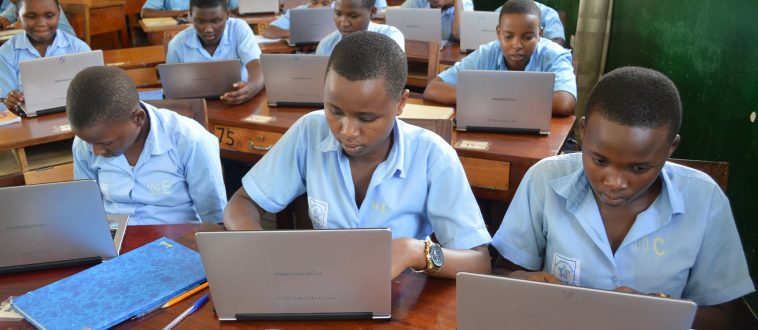Known for its vibrant culture, rich heritage, and diverse entertainment scene, South Africa stands at the crossroads of tradition and innovation. In recent years, the rapid advancement of technology, particularly artificial intelligence (AI), has been transforming various aspects of the entertainment industry worldwide and the South African entertainment industry is not left out.
Generally, from music and film production to gaming and virtual reality experiences, AI has been increasingly integrated into creative processes, distribution channels, and audience engagement strategies around the world. Artificial intelligence encompasses a wide range of technologies and applications that enable machines to perform tasks that typically require human intelligence, such as learning, reasoning, problem-solving, and decision-making. In the context of the South African entertainment industry, AI is being utilized in various ways to enhance creativity, efficiency, and audience engagement.
AI algorithms are revolutionizing content creation, personalized recommendations, virtual assistants, gaming, and immersive experiences. They can analyze vast data to inform creative decisions, assist in story idea generation, and provide personalized recommendations. Streaming platforms like Netflix and Spotify use AI to curate customized playlists and optimize user experiences. AI-powered virtual assistants and chatbots are enhancing customer service, ticketing, and facilitating bookings. AI technologies are driving innovations in gaming and immersive experiences, creating dynamic environments and intelligent NPCs. Audience engagement and marketing are also being boosted by AI analytics tools, enabling entertainment companies to tailor marketing campaigns, optimize advertising strategies, and measure promotional effectiveness.
Does South Africa Depend on AI for its Entertainment?
In the entertainment industry today, there has always been a constant need to adapt to trends especially those that uplift and promote the industry and South Africa is not exceptional. The adoption of AI in the entertainment industry in South Africa has presented several opportunities for innovation, growth, and competitiveness:
Enhancing Creativity and Innovation: AI technologies have empowered South African artists, filmmakers, musicians, and content creators to explore new creative possibilities, experiment with innovative formats, and reach global audiences. AI-driven tools for music composition, visual effects, and digital art have inspired creativity and fostered collaboration within the local creative community.
Improving Production Efficiency: AI-powered tools and automation technologies have been used to streamline production workflows, reduce production costs, and accelerate time-to-market for South African entertainment companies. AI-driven editing software, visual effects platforms, and post-production tools are used to enhance efficiency and quality in film, television, and music production.
Expanding Audience Reach: AI-driven recommendation systems and personalized content delivery platforms have helped South African entertainment companies expand their audience reach and attract diverse audiences both domestically and internationally. By leveraging AI for targeted marketing and audience engagement, South African artists and content creators have been able to connect with niche audiences and build loyal fan communities.
Fostering Cultural Exchange and Diversity: AI technologies have the potential to facilitate cultural exchange, collaboration, and diversity in South Africa’s entertainment industry. By harnessing AI-driven translation, localization, and content adaptation tools, South African artists and content creators can overcome language barriers, reach global audiences, and promote cultural diversity and inclusivity.
Driving Technological Innovation: The integration of AI into South Africa’s entertainment industry has catalyzed technological innovation and knowledge transfer across sectors. Collaborations between entertainment companies, technology startups, research institutions, and educational organizations can foster cross-disciplinary innovation and talent development in AI-driven entertainment technologies.
Despite the opportunities presented by AI adoption in South Africa’s entertainment industry, several challenges and considerations must be addressed:
The digital divide in South Africa is a major concern, with uneven access to AI technologies and digital infrastructure, particularly in rural areas, hindering equitable participation in AI-driven entertainment innovations. To address this, investments in education, training, and capacity building are needed to build a skilled workforce capable of leveraging AI technologies. Data privacy and ethics are also crucial, with South African entertainment companies adhering to regulations and implementing transparent governance practices. Balancing technological advancements with the preservation of local languages, traditions, and storytelling practices is essential to maintaining cultural diversity and authenticity in the digital age.
The adoption of artificial intelligence has presented both opportunities and challenges for South Africa’s entertainment industry. By harnessing AI technologies for content creation, audience engagement, and business innovation, South African artists, filmmakers, musicians, and content creators can unlock new creative possibilities, expand audience reach, and drive economic growth and competitiveness.
However, realizing the full potential of AI in entertainment requires addressing challenges related to access and infrastructure, skills and talent development, data privacy and ethics, and cultural identity. Through strategic investments, collaborative partnerships, and forward-thinking policies, South Africa can position itself as a hub for AI-driven innovation and creativity in the global entertainment landscape.


